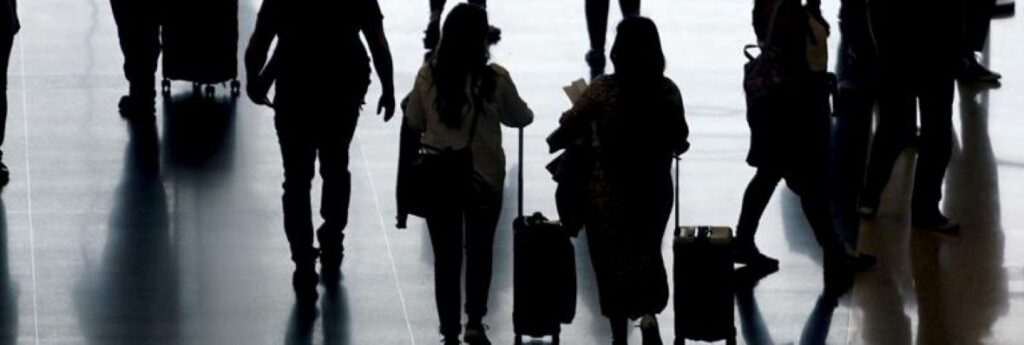Frontier Airlines and five international carriers have agreed to refund more than US $600 million combined to travellers whose trips were cancelled or significantly delayed since the start of the pandemic, according to federal officials in the US. However, the largest US airlines, which accounted for the bulk of complaints about refunds, avoided fines.
An official said no other US carriers are being investigated for potential fines, however more foreign carriers are still being scrutinized.
The US Department of Transportation said it also fined the same airlines more than $7 million for delaying refunds so long that they violated consumer-protection rules.
In 2020, United Airlines had the most refund-related complaints filed with DOT – more than 10,000 – although smaller Frontier had a higher rate of complaints. Air Canada, El Al and TAP Portugal were next, both over 5,000, followed by American Airlines and Frontier, both topping 4,000.
Air Canada agreed last year to pay $4.5 million to settle similar US allegations of slow refunds and was given credit of $2.5 million for refunds. The Transportation Department initially sought $25.5 million in that case.
Among the current payouts, Frontier Airlines is refunding $222 million and paying a $2.2 million civil penalty. TAP Portugal will refund $126.5 million and pay a $1.1 million fine; Air India will pay $121.5 million in refunds and a $1.4 million penalty; Aeromexico will pay $13.6 million and a $900,000 fine; Israel’s El Al will pay $61.9 million and a $900,000 penalty; and Colombia’s Avianca will pay $76.8 million and a $750,000 fine.
Consumers flooded the agency with thousands of complaints about their inability to get refunds when the airlines canceled huge numbers of flights after the pandemic hit the US in early 2020. It was by far the leading category of complaints.
“When Americans buy a ticket on an airline, we expect to get to our destination safely, reliably and affordably, and our job at DOT is to hold airlines accountable for these expectations,” Transportation Secretary Pete Buttigieg said.
In a consent order, the government charged that Frontier changed its definition of a significant delay to make refunds less likely, and an online system to process credits went down for a 15-day period in 2020.
Frontier spokeswoman Jennifer de la Cruz said the Denver-based airline issued nearly $100 million in “goodwill refunds,” including to people with non-refundable tickets who cancelled on their own and were not entitled to a refund under federal law.
“We have more enforcement actions and investigations underway and there may be more news to come by way of fines,” Buttigieg said.
Blane Workie, the assistant general counsel for the Transportation Department’s Office of Aviation Consumer Protection added, “We do not have any pending cases against other US carriers. Our remaining cases are against foreign air carriers.”
He explained that there are no fines pending for other US airlines because they responded “shortly after” the Transportation Department reminded them in April 2020 of their obligation to provide quick refunds.
That did not satisfy consumer advocates, who said that the major US airlines also violated rules around refunds – even if they took corrective steps more quickly.
“Frontier was a bad player in all this, and they deserve to be fined, and we’re glad they are paying the refunds they were supposed to pay, but we are very critical of how the DOT just seems to not want to go after the biggest fish, the ones causing the most problems,” said Bill McGee of the American Economic Liberties Project, a non-partisan group that opposes concentrated industrial power.

